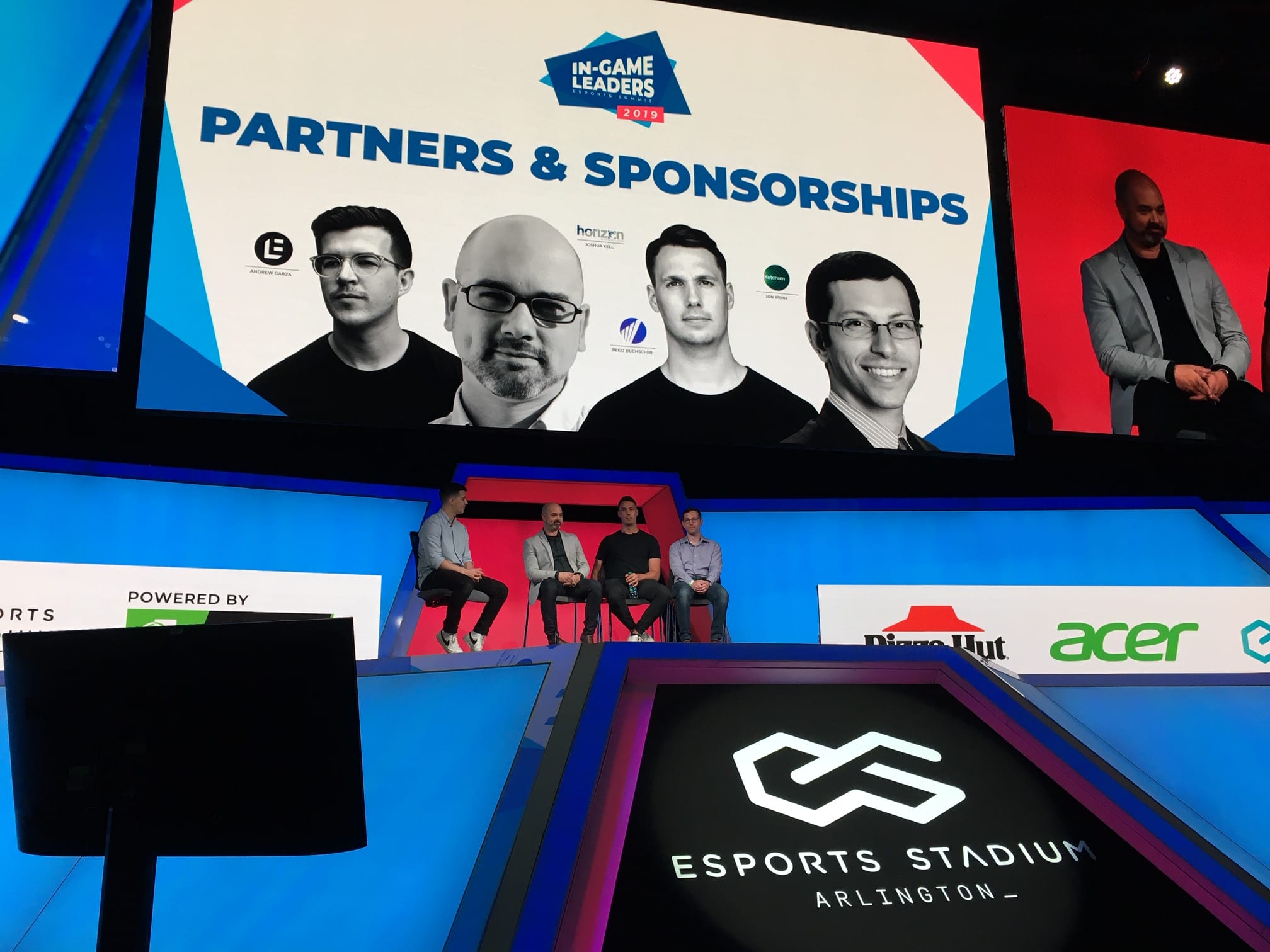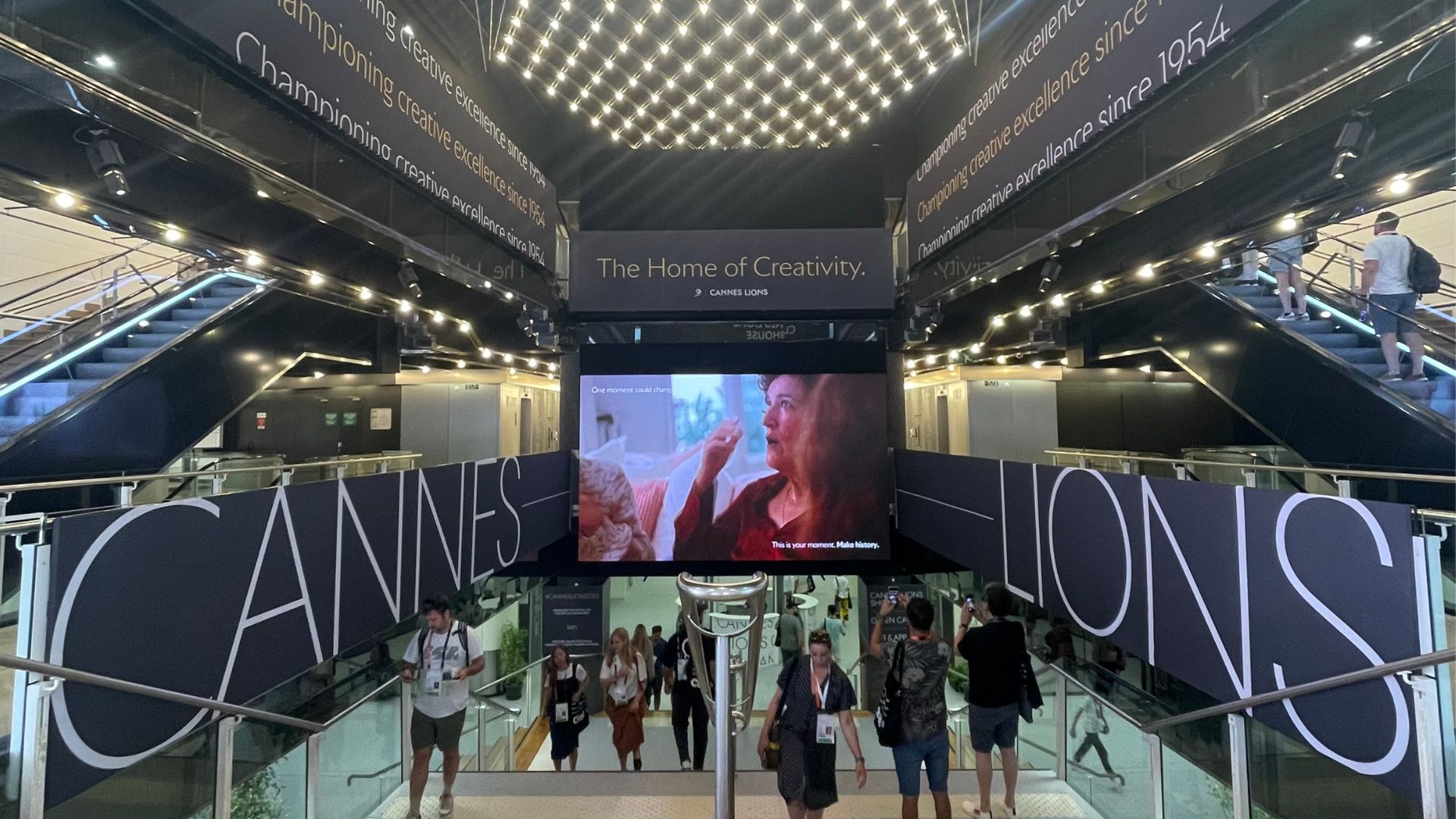This weekend I had the pleasure of speaking on a panel at the inaugural In-Game Leaders Esports Summit (IGL) at Texas’ Esports Stadium Arlington, the largest dedicated esports facility in North America.
The IGL Summit brought together all sections of the esports ecosystem for a day of networking, education and inspiration. For a panel focused on “Partners and Sponsorships,” I shared the stage with Reed Duchscher, CEO of Night Media, who discussed his work managing content creators and online influencers, as well as Joshua Kell, CEO of Horizon AVL, whose A/V business partners with technology providers and builds esports spaces at schools, community centers and other public places. I focused on the role consultancies like Ketchum play, serving as the connective tissue between esports teams and organizations, game developers and endemic/non-endemic brands, all while driving traditional and social media coverage of esports stories and activations.

A large portion of event attendees were college students, eager to learn about different ways they can work with video games. One common lesson of the day, echoed by all panelists, is that while many people love playing video games, very few individuals can make a stable living that way. The competitive scene has a high bar for success as a player or streamer, but there are many lucrative and rewarding opportunities beyond being a professional player. Panels highlighted necessary and relevant skill sets in PR, marketing, finance, content creation, event planning, community building, A/V, production tech, and more.
Other discussions focused on the next big things in the esports space. Some of my XP-building takeaways include…
Virtual Stadium Rights are the new frontier.
Pizza Hut U.S. Chief Brand Officer Marianne Radley discussed how the company is breaking new digital ground, becoming the official sponsor of the EA Sports Madden NFL 20 Championship Series. Through this sponsorship, Pizza Hut is the first company to secure official virtual stadium sponsor rights, as all games of the Series will be played in a branded Pizza Hut Stadium. The Company is building on what it sees as a natural partnership between pizza, football and video games, expanding reach to an audience of sports and gaming fans.
War Games take on a new meaning.
One panel featured several members of the US military who discussed how video gaming hardware and software is used in training today. The military has done away with clunky control mechanisms for unmanned military devices like drones and bomb disposal robots and replaced them with devices that closely resemble a gaming controller. Panelists also discussed how playing video games encourages better communication, especially among groups who don’t speak the same language. The mental thinking behind using nonverbal, in-game prompts aligns with nonverbal hand signals used by military forces and has demonstrated increased communication effectiveness among joint-operations such as those conducted by NATO forces.
High Schools and colleges are taking esports seriously.
A panel of collegiate esports organizations discussed the elevation of grassroots student gaming clubs into official, school-sponsored organizations, opening a pathway for funding, branding and scholarships. As one local example of progress, just last month, the University Interscholastic League of Texas announced plans to review a proposal to include esports as an officially sanctioned activity. If that proposal passes, esports would become an official part of high school sports and academic competitions across the entire state.
Respect the tech.
Esports Stadium Arlington’s 100,000 square feet gaming competition and spectating space is equipped with technological prowess that would hold its weight against any major concert venue or theater. The massive bandwidth required to host an esports event in the venue is supported by a one-gigabyte dedicated symmetric line that can be expanded out to five gigabytes if necessary. Venue representatives explained the importance of this network approach so that the venue can upload data while simultaneously downloading data, without loss of bandwidth. Latency in esports is referred to as “playing underwater,” and some of the more technical panels of the day focused on the hardware, software and network architecture needed to keep everything running smoothly. In short, the spectacle of esports wouldn’t be possible without the technology and technicians who know how to run and repair it.
It was incredible to take part in the inaugural IGL event, and the venue already announced a Winter IGL Summit to take place in January 2020. I look forward to this event series taking off as interest in the business of esports continues to grow. I enjoyed the opportunity to share lessons from my own experience and learn from other industry professionals, as well as influencing the ambitious young people looking to turn their passion into a career. When fans, industry and brands work together in support of esports, we all level up. Connect with me here if you have any questions.



